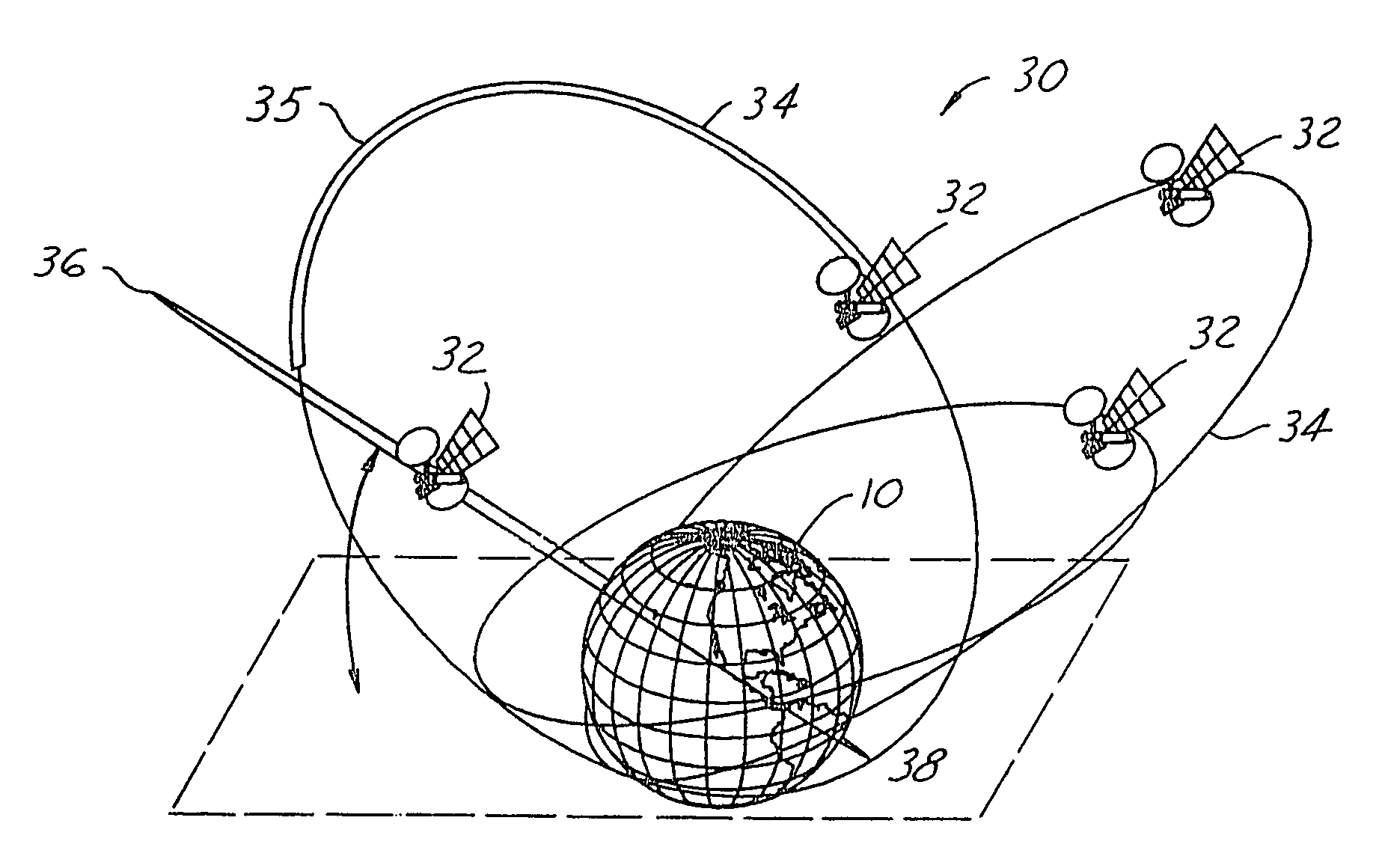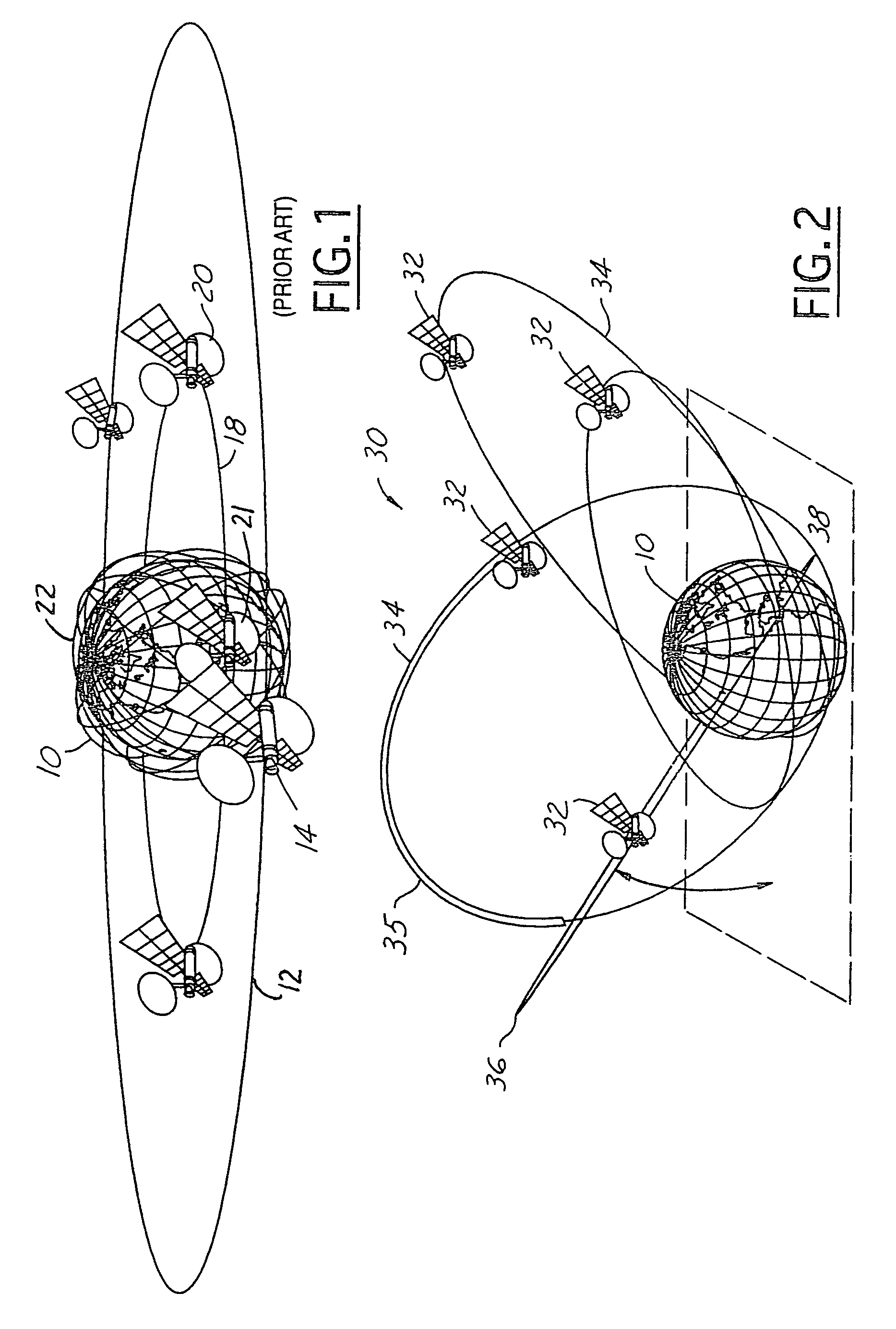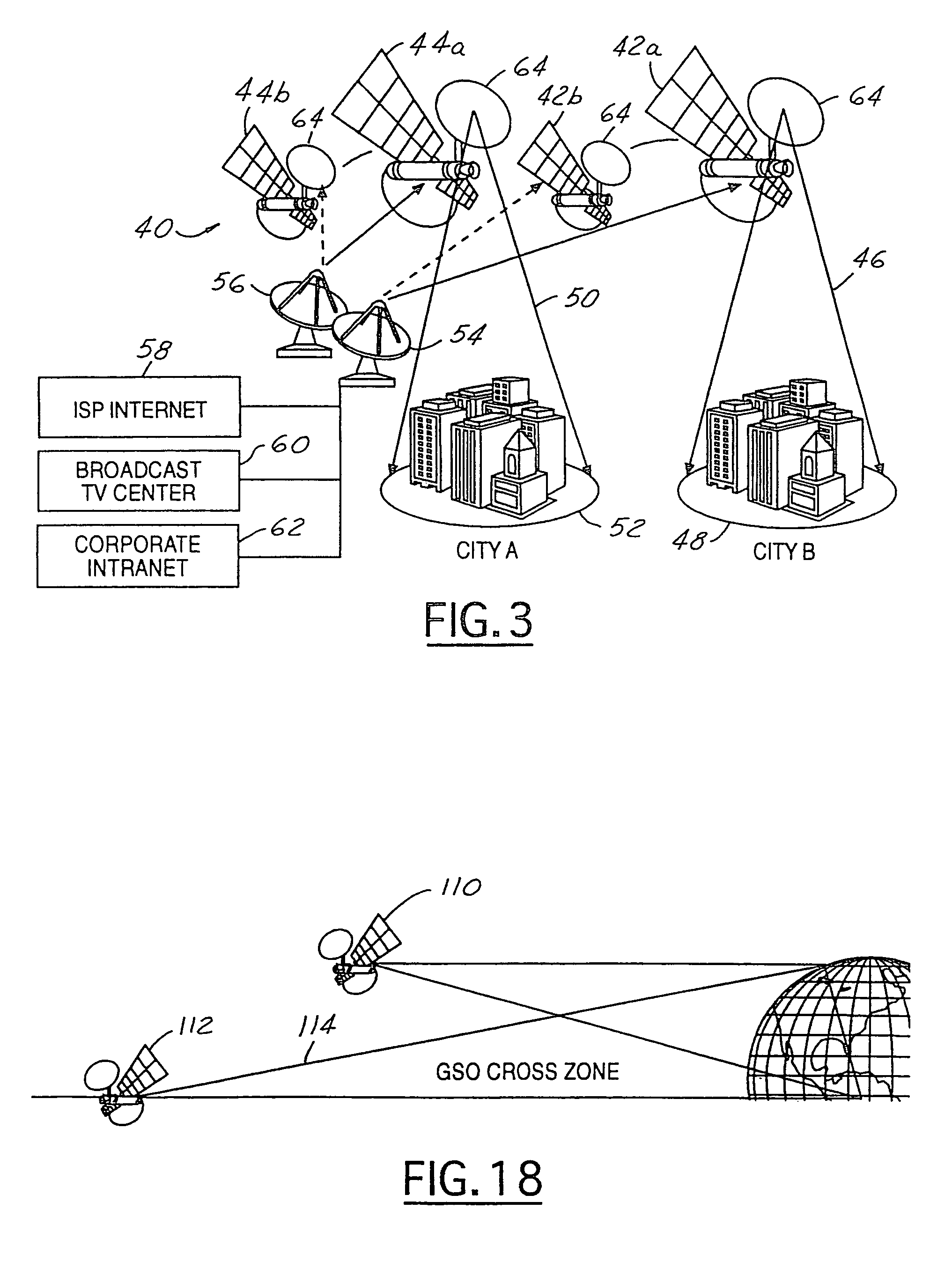Satellite communication system
a communication system and satellite technology, applied in the field of satellite communications systems, can solve the problems of limited growth to higher frequencies, complex and expensive new systems, and increasing the scarce remaining slots, and achieve the effect of low cost and low investmen
- Summary
- Abstract
- Description
- Claims
- Application Information
AI Technical Summary
Benefits of technology
Problems solved by technology
Method used
Image
Examples
Embodiment Construction
)
[0038]The present disclosure is illustrated herein in terms of a satellite orbit system using various inclination angles, eccentricity values and other values. It should be understood that specific numerical values are introduced as examples and not as final design values. Also, the preferred embodiment includes one satellite per orbit. However, more than one satellite could be employed.
[0039]The essence of the disclosure is the establishment of a satellite communication system that employs satellites that allow satellite communications for various types of services including mobile and fixed satellite coverage. The satellite system may include eccentric sub-geosynchronous orbits with identical repeating ground tracks.
[0040]In the present disclosure, inclined elliptic sub-geosynchronous orbits (SGSO) satellites with altitudes below the geosynchronous belt enable operation to service for a predetermined service region on a landmass with possible spectrum re-use of frequencies with t...
PUM
 Login to View More
Login to View More Abstract
Description
Claims
Application Information
 Login to View More
Login to View More - R&D
- Intellectual Property
- Life Sciences
- Materials
- Tech Scout
- Unparalleled Data Quality
- Higher Quality Content
- 60% Fewer Hallucinations
Browse by: Latest US Patents, China's latest patents, Technical Efficacy Thesaurus, Application Domain, Technology Topic, Popular Technical Reports.
© 2025 PatSnap. All rights reserved.Legal|Privacy policy|Modern Slavery Act Transparency Statement|Sitemap|About US| Contact US: help@patsnap.com



